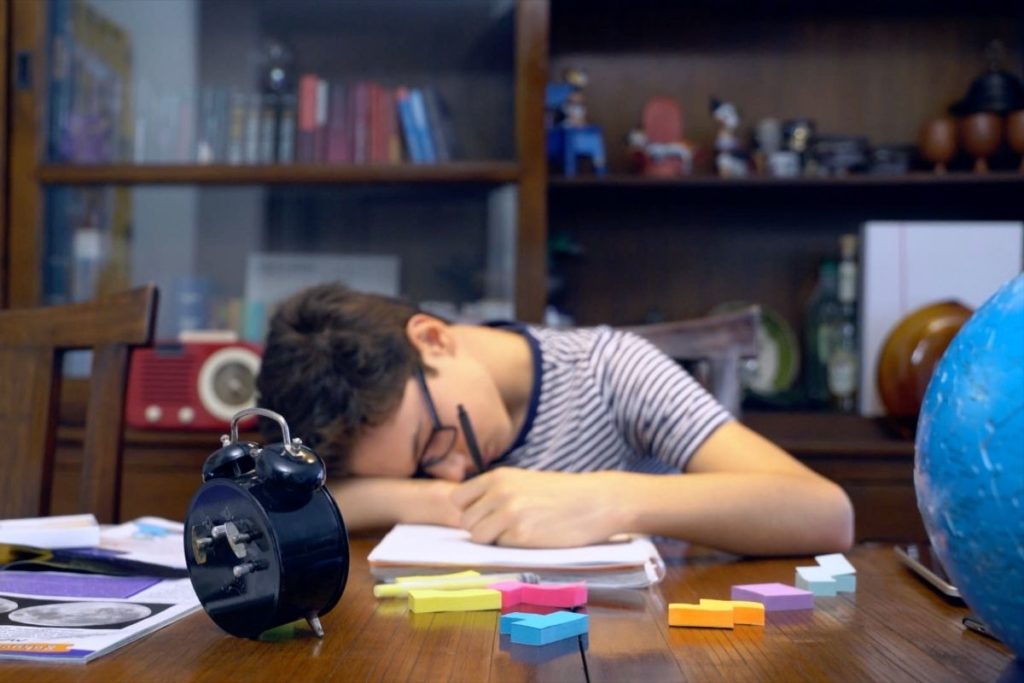Rob Jennings is a reporter at Advance Media, where this first appeared.
5:48 a.m. That’s when my alarm went off during my long-ago high school freshman year in Queens.
I couldn’t tell you when my first class began — it must have been early since lunch was at 10:45 a.m. — but that pre-dawn wakeup is seared into my memory.
Does high school start too early in the morning, depriving teens of much-needed sleep? That’s not a new debate, but suddenly a very hot topic in New Jersey.
There’s a bill in the state legislature that would prohibit high schools from starting earlier than 8:30 a.m., and some districts may not be waiting on the outcome. Chatham High School in Morris County is moving its start time from 7:40 a.m. to 8:20 a.m. in September, and a similar discussion is underway in Cherry Hill in Camden County.
I’m a dad of two future high school students, but until recently hadn’t given this much thought. Then I found out that my 8th grader will be reporting to high school by 7:18 a.m. this fall.
Will I be setting the alarm for 5:48 a.m., as my dad did way back in 1985?
Although 7:18 a.m. is an earlier starting time than I would prefer, I’m undecided on whether, and how, moving back the high school day throughout the state would work.
Starting at 8:30 a.m. could create scheduling challenges for working parents. What about the impact on after-school activities? Finding time for homework is already challenging; could this make it worse?
I totally get the arguments for starting later. Not getting enough sleep can worsen mental health, including anxiety, depression, absenteeism and overall poor decision-making, and teens in particular are reeling from the impacts of the coronavirus pandemic.
Did I get enough sleep in high school? Probably not, and I had far fewer distractions than teenagers have today. No cell phone. No social media. No video games. No cable television. Not even a landline phone for my room. And the MLB playoffs didn’t last for a full month every fall, with games often starting after 8 p.m. and routinely ending around midnight.
Teenage life in the 1980s had plenty of pitfalls — there’s a reason “The Breakfast Club” connected with so many of us — but in general there were less demands on our time. Everything about being a high school student today seems grueling, from emotionally-destructive, social media-driven comparisons with classmates, to the hyper-competitive angling for college admissions and scholarships.
Is this a problem that can be fixed by moving back start times? Or maybe lessened?
One anecdotal argument against it is that students might stay up later, canceling out the benefit. I’ve got to admit, that was my initial thought, too, though in Seattle — where high school starting times moved back 55 minutes six years ago — a follow-up study found it resulted in teens getting, on average, an additional 34 minutes of sleep per night.
The school superintendent in Hamilton, while not formally opposing the proposed legislation in Trenton, last week laid out a litany of logistical hurdles. Starting later would mean pushing back sports team practices and Hamilton is without lighted school athletic fields. That might not be a problem in the spring, but what about the fall? Might getting home later ultimately prove to be just as much a grind to teens are getting up earlier?
There are just so many moving parts on this issue.
One big variable is that school starting times don’t affect all students equally. Some live close enough to walk to high school, some get driven by a parent — not necessarily a time-saver when traffic is heavy — while others spend up to an hour or more each way riding the bus. An early start time impacts the last student getting on the bus in the morning less than the unfortunate teen at the first stop.
When it comes to teens not getting enough sleep, some of the responsibility falls on us, as parents. The CDC a few years ago encouraged us to set regular bed times and take away their cell phones at night. I know I’ve fallen short on that, often letting my older son stay up late to watch sports.
So, yes, let’s have a debate, with open minds. We can probably agree that getting up at 5:48 a.m., as I did all those years ago — and my 8th grader may replicate this fall — is not ideal.
Just let’s be careful not to fix it by creating other problems.




